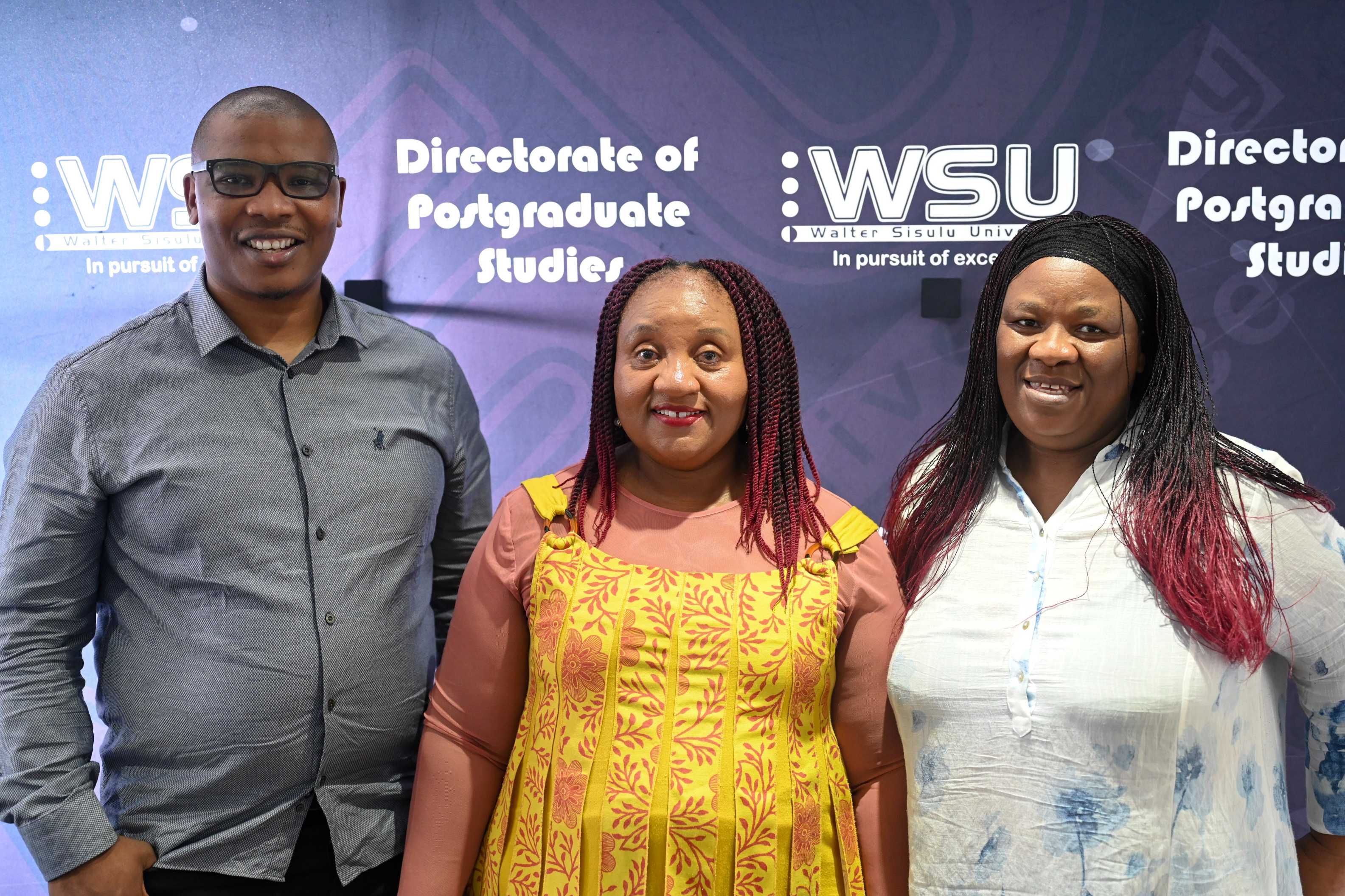WSU ENHANCES SUPERVISORY SKILLS FOR POSTGRADUATE STUDIES

In a bid to enhance the quality of postgraduate supervision, the WSU Directorate of Postgraduate Studies hosted a supervisor refresher training workshop on 12 and 13 March 2025.
The workshop aimed to equip both new and experienced supervisors with the knowledge and skills required to successfully mentor postgraduate students in the constantly evolving academic space.
Facilitated by researcher, Professor Thobeka Ncanywa, the workshop covered key areas including the detection of plagiarism, supervision of proposals and theses, referencing, and publication guidance.
Ncanywa asserted that their goal was to ensure that supervisors not only propel students towards obtaining their qualifications, but also ensure that they produced impactful quality research that would change lives.
“We are not supervising students at WSU to get more postgraduate students who do not add value to our society. We are creators of knowledge. When we get through these two days, we will ensure quality and impact,” said Ncanywa.
In line WSU’s commitment to attracting and retaining high calibre postgraduate students, DPS is committed to ensuring that supervisors have a greater grasp of new technologies and how they can be leveraged in research.
Director for Postgraduate studies, Dr Asabonga Mngeni emphasised the importance of staying ahead of the curve for supervisors.
“Things are moving very quickly, especially with the rise of artificial intelligence, and we need supervisors who can keep up with these advancements. Students are often ahead when it comes to new technologies, and if supervisors lag behind, it can lead to unnecessary frustrations and delays. This training ensures that our supervisors are well-equipped to guide their students effectively and keep up with emerging trends,” he explained,” said Mngeni.
Addressing supervisors at the workshop, WSU’s Deputy Vice-Chancellor for Research & Internationalisation, Professor Nosisi Feza, encouraged the group to form synergies and work in unity to ensure that students complete their postgraduate studies in record time.
“Our students are going to graduate. Not with poor quality, because we will be paying attention. Those who have been in the system for too long, we are getting them out. Any student starting in 2025 will not stay longer than is necessary,” said Feza.
Echoing Feza’s words, Mngeni asserted that one of their objectives was to help students graduate within record time.
“When supervisors are equipped with the right skills, they can streamline the research process and ensure students’ progress efficiently through their academic journey. This not only benefits the students but also the university, as delays in graduation can have financial implications,” Mngeni remarked.
In addition to enhancing supervisory skills, the training is projected to also help increase the university’s research output.
By Yanga Ziwele
